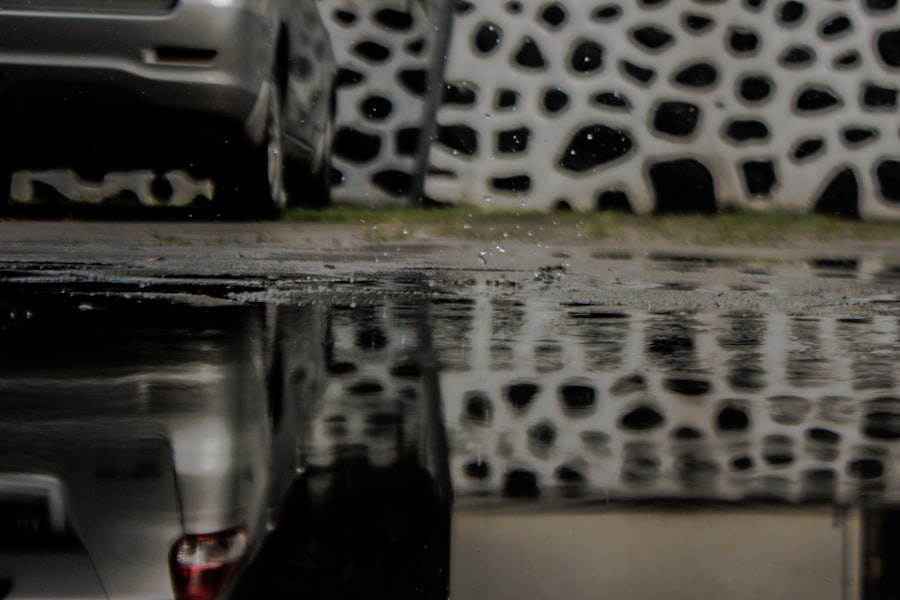Chickens exhibit distinctive behaviors that are essential to comprehend for proper care. Their natural curiosity and exploratory nature often lead to interactions with their water sources. Chickens have a tendency to peck at objects in their environment, which can result in water spillage.
Additionally, their instinctive scratching behavior can contribute to water disturbances. Chickens are social creatures that display flock mentality. This means that if one chicken engages in a particular behavior, such as pecking at a waterer, others may imitate it.
This collective behavior can exacerbate water spillage issues in chicken coops. Understanding these innate chicken behaviors is crucial for poultry keepers. It allows them to anticipate potential problems and implement appropriate measures to ensure consistent access to clean water.
Recognizing that these actions are part of normal chicken behavior, rather than misconduct, helps owners develop effective strategies for managing their flock’s water needs.
Table of Contents
Key Takeaways
- Chickens have natural behaviors such as scratching and pecking, which can lead to knocking over water sources.
- Water is essential for chickens as it aids in digestion, nutrient absorption, and regulating body temperature.
- Common reasons for chickens knocking over water include boredom, overcrowding, and lack of proper waterer placement.
- Solutions to prevent chickens from knocking over water include using heavy or secured waterers, providing enough space, and keeping chickens entertained.
- When choosing a waterer for chickens, consider factors such as size, material, and ease of cleaning to ensure the best fit for your flock.
- Spilled water can lead to wet litter, bacterial growth, and health issues for chickens, emphasizing the importance of preventing water spillage.
- Ensuring chickens have access to clean water is crucial for their overall health and well-being.
The importance of water for chickens
The Importance of Hydration
Without an adequate supply of water, chickens can quickly become dehydrated, leading to a range of health issues. Dehydration can cause decreased egg production, poor feather quality, and even death in severe cases.
Regulating Body Temperature
In addition to hydration, water plays a key role in helping chickens regulate their body temperature, especially during hot weather. Chickens do not sweat like humans do, so they rely on panting and consuming cool water to stay cool. Without access to water, chickens can easily overheat, leading to heat stress and potentially fatal heat stroke.
Ensuring Access to Clean Water
Given the vital role that water plays in a chicken’s health, it’s clear that ensuring they have constant access to clean water is a top priority for any chicken owner.
Common reasons why chickens knock over water

There are several common reasons why chickens may knock over their water, and understanding these reasons is the first step in preventing this behavior. One common reason is simply curiosity – chickens are naturally inquisitive animals and may peck at or investigate their waterer, leading to accidental spillage. Additionally, chickens have a natural instinct to scratch at the ground, which can also result in them knocking over their water.
This behavior is particularly common in free-range chickens who have access to the ground and may scratch around their waterer. Another common reason for water spillage is overcrowding at the waterer. When too many chickens try to drink from the same waterer at once, it can lead to jostling and competition, which may result in the waterer being knocked over.
Additionally, if the waterer is not stable or secure, it is more likely to be knocked over by curious or agitated chickens. By understanding these common reasons for water spillage, chicken owners can take proactive steps to prevent this behavior and ensure their chickens have constant access to clean water.
Solutions to prevent chickens from knocking over water
Fortunately, there are several effective solutions to prevent chickens from knocking over their water and causing unnecessary spillage. One simple solution is to invest in a sturdy and stable waterer that is less likely to be knocked over by curious or agitated chickens. There are many different types of waterers available, including hanging, ground-based, and automatic options, so chicken owners can choose the best option for their specific setup and flock size.
Another solution is to provide multiple waterers in different locations within the coop or run. This can help reduce overcrowding and competition at the waterer, which in turn can decrease the likelihood of spillage. Additionally, placing the waterers on a raised platform or using a specially designed stand can help keep them stable and secure, reducing the risk of them being knocked over by scratching or pecking chickens.
Tips for choosing the right waterer for chickens
When it comes to choosing the right waterer for chickens, there are several factors to consider in order to meet the specific needs of the flock. One important consideration is the size of the flock – larger flocks may require multiple waterers to prevent overcrowding and competition, while smaller flocks may only need one or two waterers. Additionally, the type of waterer should be chosen based on the specific setup of the coop or run – for example, hanging waterers are ideal for coops with limited floor space, while ground-based options may be better suited for free-range setups.
Another important factor to consider is the material of the waterer – plastic, metal, and galvanized options are all available, each with their own advantages and disadvantages. Plastic waterers are lightweight and easy to clean but may be less durable than metal options, while galvanized waterers are extremely durable but may be heavier and more difficult to clean. By considering these factors and choosing a waterer that meets the specific needs of the flock and setup, chicken owners can help prevent unnecessary spillage and ensure their chickens have constant access to clean water.
The impact of spilled water on chicken health

Dehydration and Health Risks
One of the most immediate concerns is dehydration – if spilled water is not replaced promptly, chickens may not have access to an adequate supply of clean water, leading to dehydration and its associated health issues.
Unhygienic Conditions and Disease
Additionally, wet bedding or flooring in the coop can create damp conditions that are ideal for the growth of harmful bacteria and parasites, increasing the risk of disease and infection among the flock.
Wasted Resources and Increased Labor
In addition to health concerns, spilled water can also lead to wasted resources and increased labor for chicken owners. Constantly refilling and cleaning up spilled water can be time-consuming and frustrating, especially if it becomes a recurring issue. By taking proactive steps to prevent chickens from knocking over their water and causing unnecessary spillage, chicken owners can help maintain a clean and healthy environment for their flock while minimizing wasted resources and labor.
Ensuring chickens have access to clean water
In conclusion, understanding the behavior of chickens around water, recognizing the importance of water for their health, addressing common reasons for water spillage, choosing the right waterer, and understanding the impact of spilled water on chicken health are all crucial aspects of ensuring that chickens have constant access to clean water. By taking proactive steps such as providing stable and secure waterers, offering multiple waterers in different locations, and choosing the right type of waterer for the specific needs of the flock, chicken owners can help prevent unnecessary spillage and maintain a healthy environment for their chickens. Ultimately, ensuring that chickens have access to clean water is a fundamental aspect of responsible chicken ownership.
By understanding their natural behaviors and needs around water, chicken owners can provide the best care for their flock and help them thrive in their environment. With proper attention to preventing unnecessary spillage and maintaining a clean and healthy coop environment, chicken owners can ensure that their flock has constant access to the essential resource of clean water.
If you’re struggling with chickens constantly knocking over their water, you may want to consider investing in a sturdy and secure chicken coop. Poultry Wizard offers some great tips on how to choose the right coop for your chickens, such as the one featured in their article “Chicken Coop Chester SC”. A well-designed coop can help prevent water spillage and keep your chickens happy and hydrated.
FAQs
Why do chickens keep knocking over water?
Chickens may knock over their water due to natural scratching and pecking behaviors, as well as their curiosity and desire to explore their surroundings.
How can I prevent chickens from knocking over their water?
You can prevent chickens from knocking over their water by using heavy, sturdy waterers, placing the waterers on a stable surface, and securing them in place to minimize movement.
What are the consequences of chickens knocking over their water?
Chickens knocking over their water can lead to wet bedding, increased risk of bacterial growth, and dehydration if they are unable to access water.
Are there specific types of waterers that are less likely to be knocked over by chickens?
Some types of waterers, such as nipple waterers or waterers with a weighted or elevated base, are less likely to be knocked over by chickens compared to open or shallow water dishes.
Meet Walter, the feathered-friend fanatic of Florida! Nestled in the sunshine state, Walter struts through life with his feathered companions, clucking his way to happiness. With a coop that’s fancier than a five-star hotel, he’s the Don Juan of the chicken world. When he’s not teaching his hens to do the cha-cha, you’ll find him in a heated debate with his prized rooster, Sir Clucks-a-Lot. Walter’s poultry passion is no yolk; he’s the sunny-side-up guy you never knew you needed in your flock of friends!







